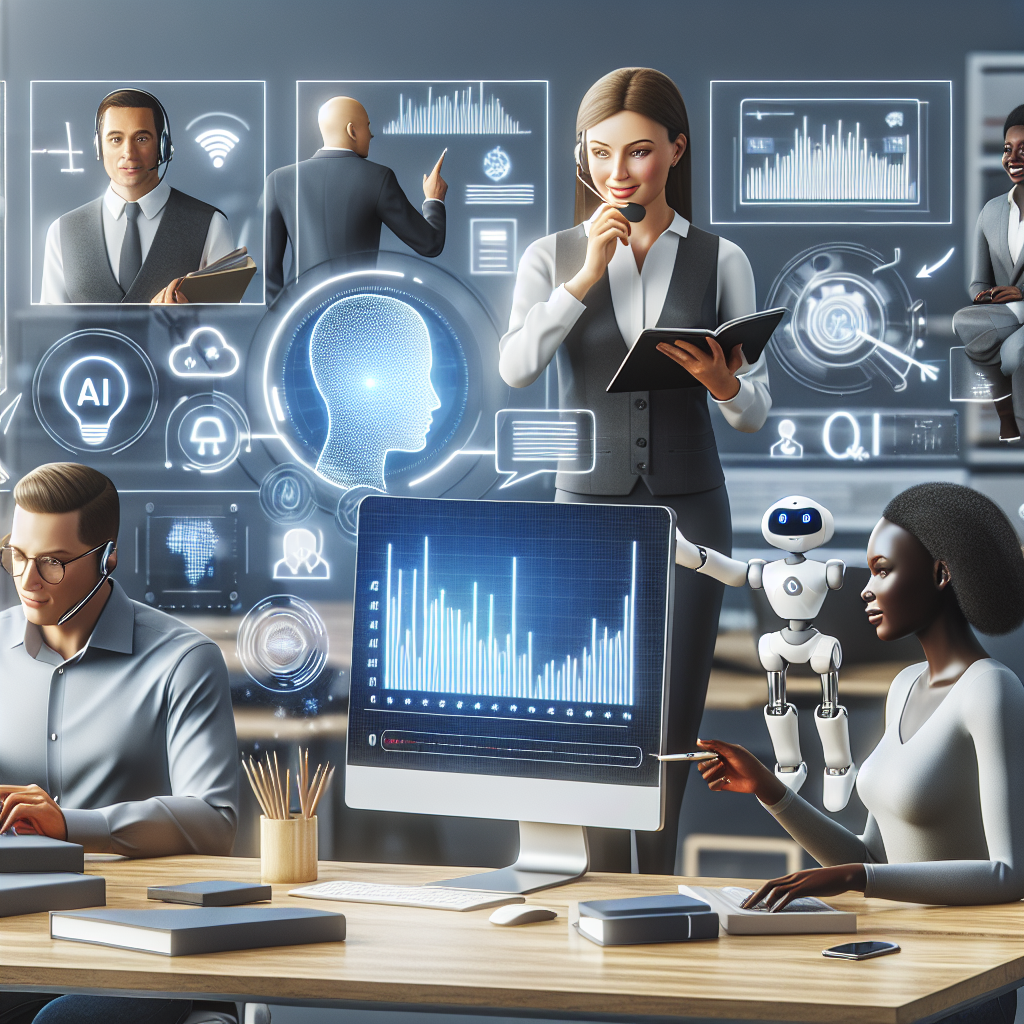The Impact of Conversational AI on Employee Productivity
Introduction
Conversational AI, also known as chatbots or virtual assistants, is a rapidly growing technology that is transforming the way businesses interact with their customers and employees. By using artificial intelligence and natural language processing, conversational AI systems can understand and respond to human language in a way that mimics human conversation.
One area where conversational AI is having a significant impact is on employee productivity. By automating routine tasks and providing instant access to information, conversational AI can help employees work more efficiently and focus on higher-value tasks. In this article, we will explore the ways in which conversational AI is improving employee productivity and the benefits it can bring to businesses.
Improved Efficiency
One of the key ways in which conversational AI is boosting employee productivity is by improving efficiency. By automating repetitive tasks such as scheduling meetings, answering common questions, and providing information on company policies and procedures, conversational AI can free up employees to focus on more important tasks.
For example, instead of spending time manually scheduling meetings and coordinating calendars, employees can simply ask a chatbot to find a suitable time and send out invites on their behalf. This can save valuable time and reduce the risk of scheduling conflicts.
Similarly, if employees have questions about company policies or procedures, they can quickly get the information they need from a chatbot, rather than having to search through lengthy documents or wait for a response from a colleague. This instant access to information can help employees make decisions more quickly and confidently, leading to greater productivity.
Increased Collaboration
Conversational AI can also improve employee productivity by facilitating collaboration and communication within teams. By providing a centralized platform for sharing information and coordinating tasks, chatbots can help employees work together more effectively and stay on the same page.
For example, a chatbot can be used to create group chat rooms for team members to discuss projects, share updates, and ask questions. This can help ensure that everyone is on the same page and reduce the need for lengthy email chains or in-person meetings.
Similarly, chatbots can be integrated with project management tools to provide real-time updates on task progress, deadlines, and resource allocation. This can help employees prioritize their work and stay focused on the most important tasks, leading to increased productivity and better outcomes for the business.
Personalized Assistance
Another way in which conversational AI is boosting employee productivity is by providing personalized assistance to employees. By using data analytics and machine learning algorithms, chatbots can learn from past interactions and tailor their responses to individual preferences and needs.
For example, a chatbot can learn an employee’s schedule and preferences for meeting times, and proactively suggest suitable times for future meetings. This can save employees time and reduce the mental burden of managing their calendars.
Similarly, chatbots can provide personalized recommendations for training opportunities, career development resources, and other relevant information based on an employee’s goals and interests. This can help employees grow their skills and advance their careers more effectively, leading to greater job satisfaction and productivity.
FAQs
Q: How can conversational AI improve employee onboarding processes?
A: Conversational AI can streamline the onboarding process by providing new employees with instant access to information on company policies, procedures, and resources. Chatbots can also answer common questions and provide guidance on key tasks, such as completing paperwork and setting up accounts, to help new employees get up to speed more quickly.
Q: How secure is conversational AI for handling sensitive information?
A: Conversational AI systems can be designed with robust security features to protect sensitive information. By using encryption, access controls, and other security measures, businesses can ensure that chatbots are compliant with data protection regulations and safeguard confidential data.
Q: Can conversational AI be customized to meet the specific needs of different industries?
A: Yes, conversational AI can be customized to meet the unique requirements of different industries, such as healthcare, finance, and retail. By tailoring the chatbot’s responses and capabilities to the specific needs of each industry, businesses can maximize the benefits of conversational AI and improve employee productivity.
Conclusion
Conversational AI is revolutionizing the way businesses operate and interact with employees. By automating routine tasks, facilitating collaboration, and providing personalized assistance, chatbots can help employees work more efficiently, make better decisions, and achieve greater productivity. As businesses continue to adopt conversational AI technology, the impact on employee productivity is expected to grow, leading to improved outcomes for both employees and the business as a whole.

